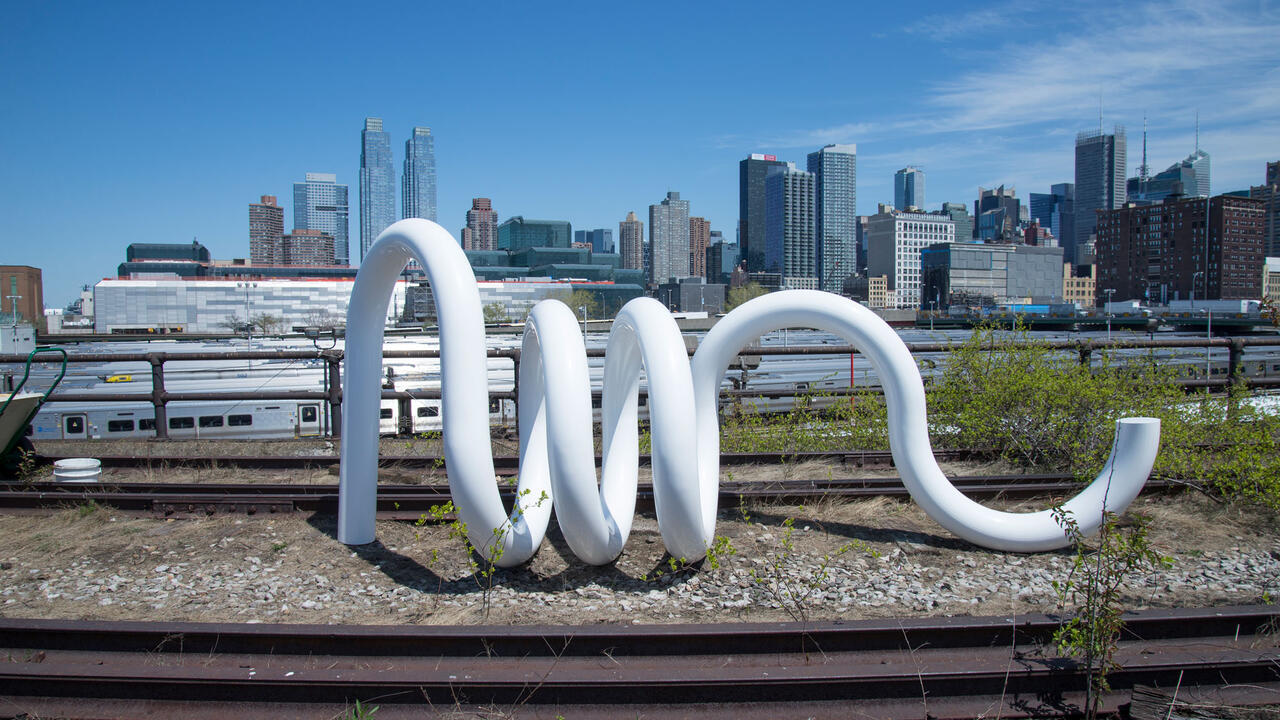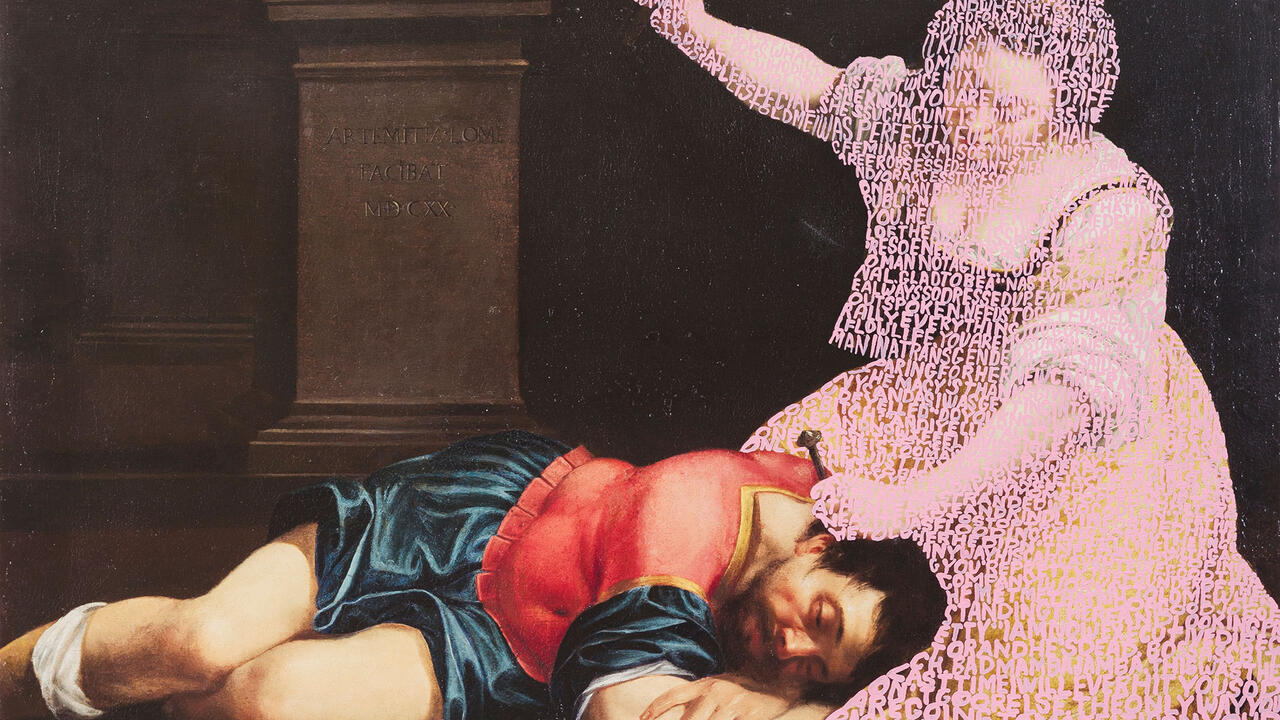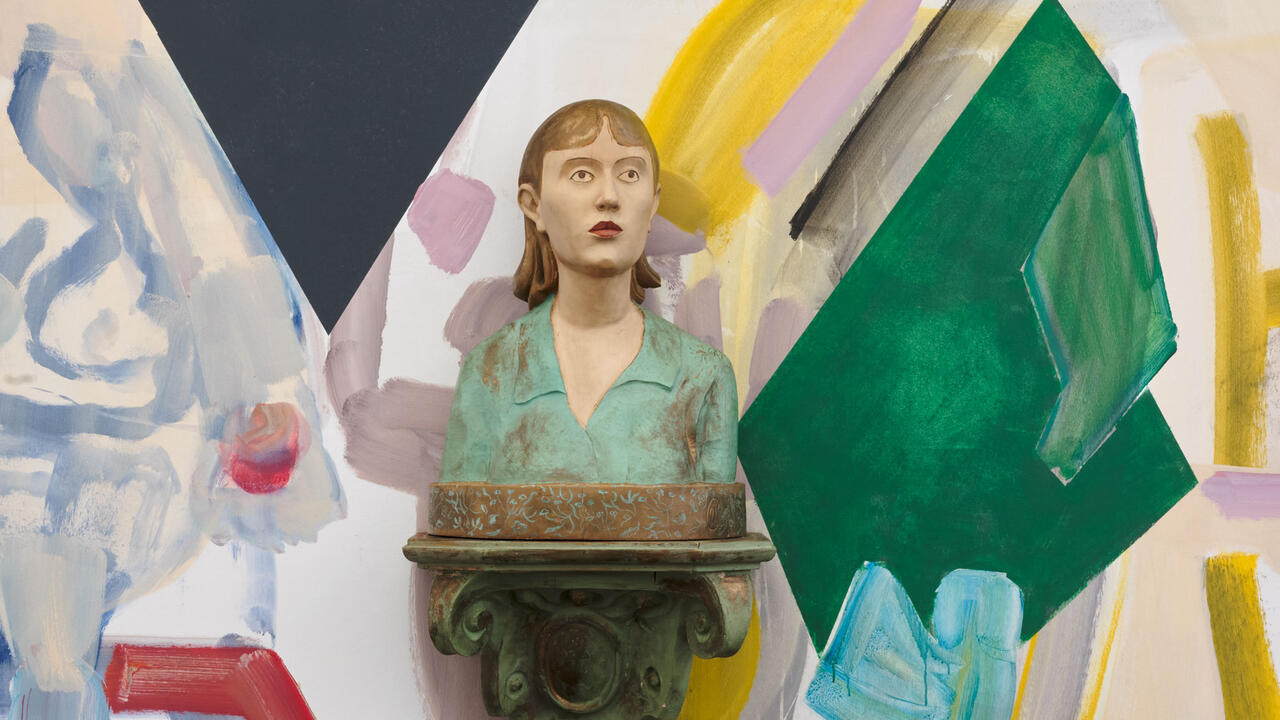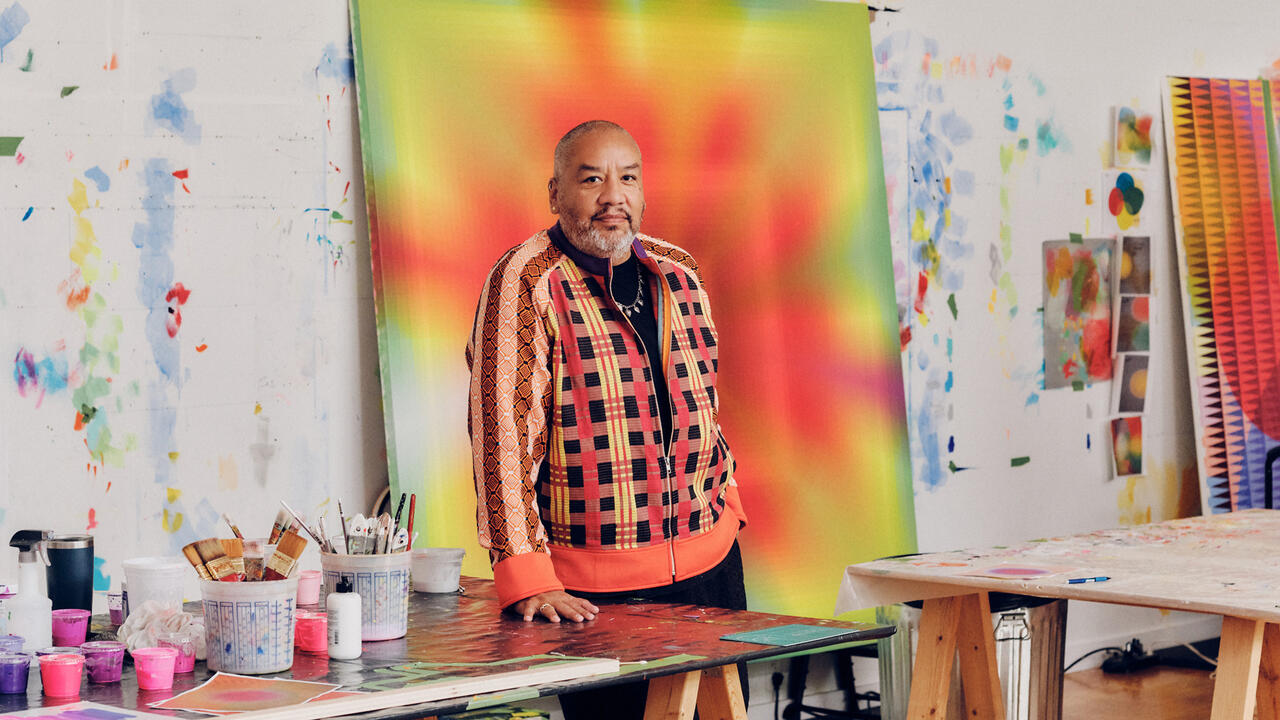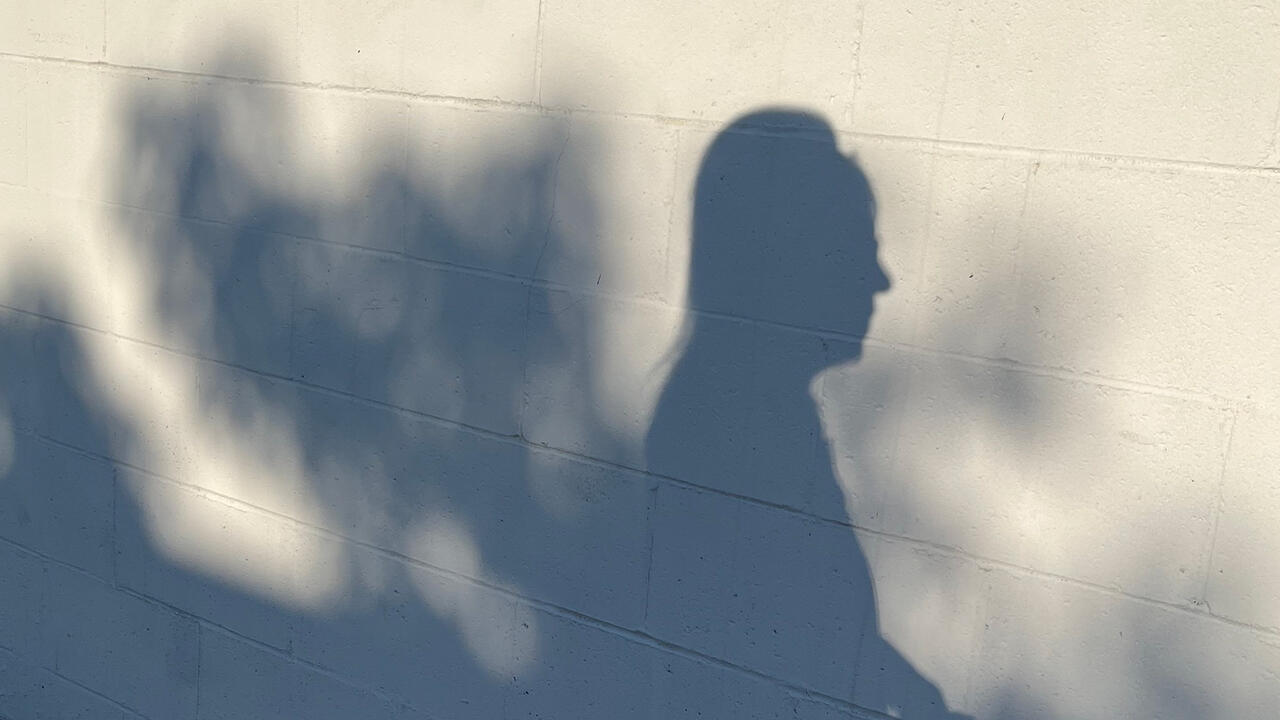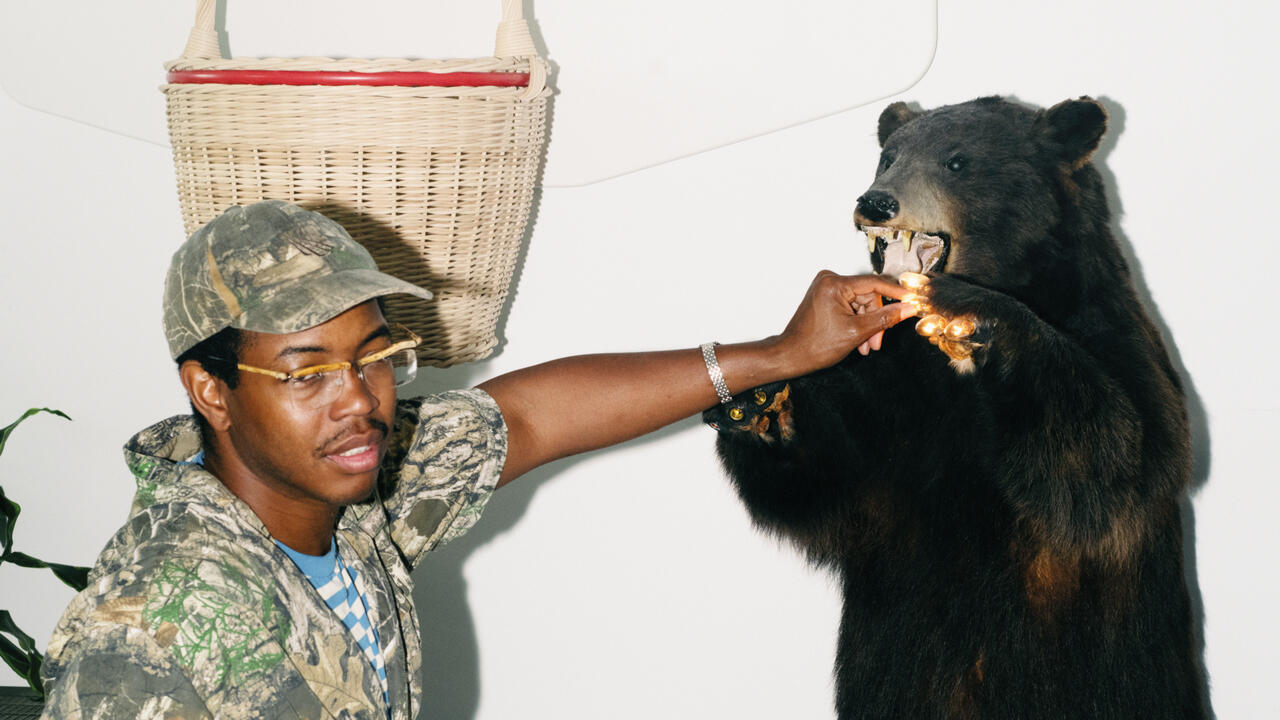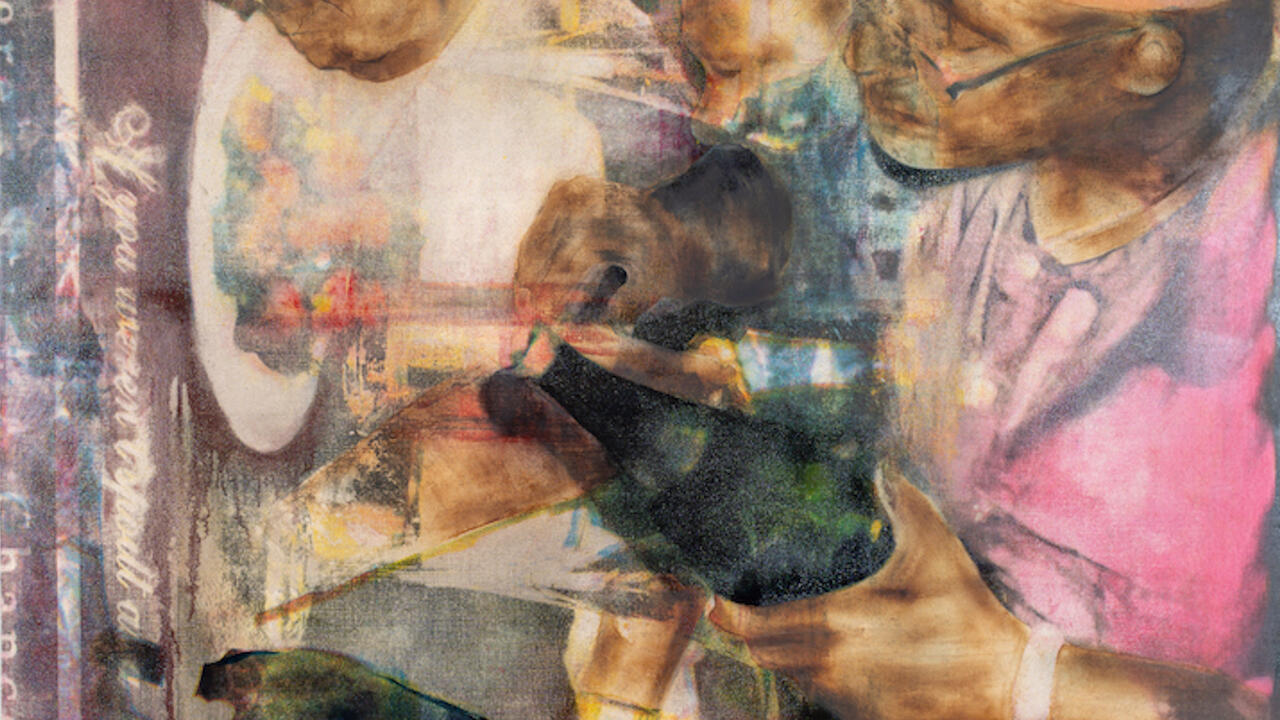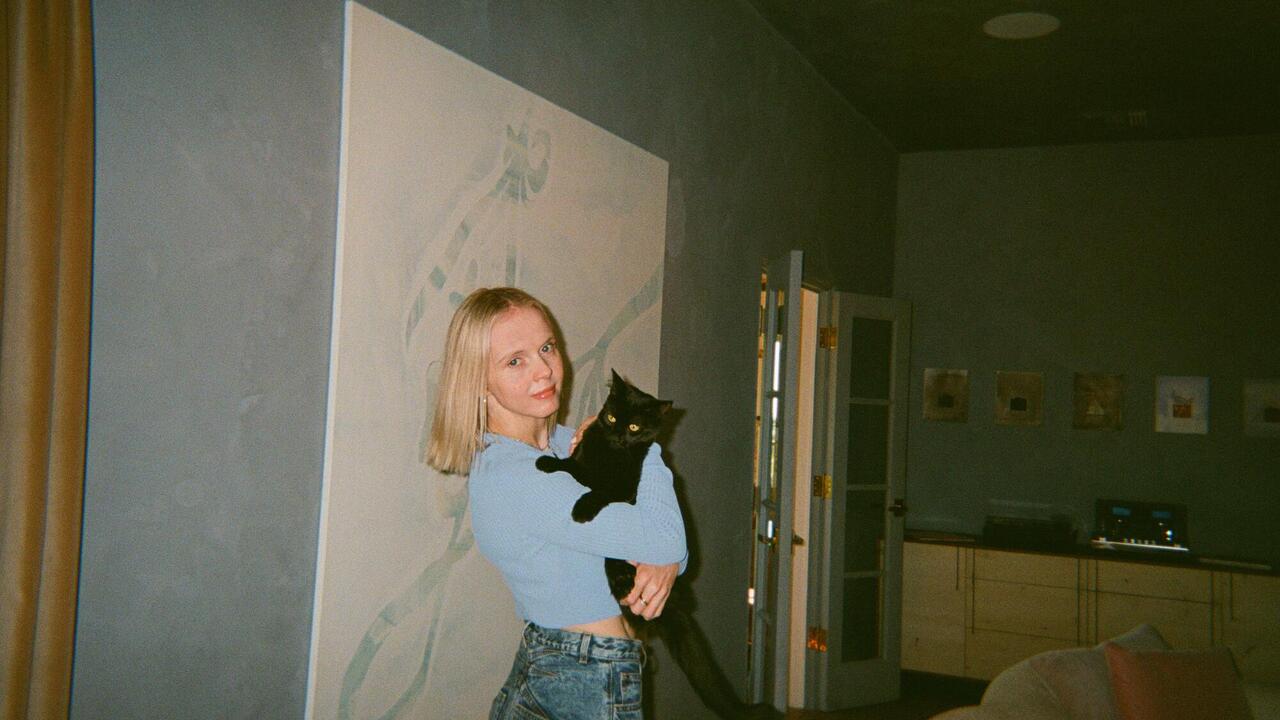Trying to Survive ‘On Venus’: Patrick Staff at the Serpentine
Mendacious news stories, industrial farming videos and leaking pipes infiltrate London’s Serpentine Sackler Gallery
Mendacious news stories, industrial farming videos and leaking pipes infiltrate London’s Serpentine Sackler Gallery

Patrick Staff’s site-specific exhibition at the Serpentine Sackler Gallery, ‘On Venus’, deals with biopolitics, looking at the ways in which exchanges between bodies, ecosystems and institutions affect human consciousness and behaviours – especially for queer, trans and non-binary people. A new video work, also entitled On Venus, features two sections: the first presents warped archival footage of industrial farming for the production of meat, fur and hormones; the second features a poem about life on the uninhabitable planet Venus, conjuring a state of near-death that has parallels with trying to survive as a queer person in a heteronormative world. The surrounding installation impinges on the gallery itself, confronting entrants with a gargoyle weathered by acidic rain, a symbol of the worsening climate crisis, harshly lit against a reflective floor. The defamiliarizing effect of Staff’s intervention rubs up against the history of the building, which was originally used as a gunpowder store. Pipes suspended from the ceiling leak acid into steel barrels, at once evoking chemical corrosion, the sharing of bodily fluids, and the uncontrollable, networked spread of viruses and data.
Staff also uses acid for a less abstract part of the show – in a series of intaglio etchings documenting British tabloid articles from 2017, which wrongly claimed that Ian Huntley, notoriously convicted for the murder of two 10-year-old girls in Soham, Cambridgeshire, in 2002, planned to undergo gender reassignment in order to be moved to a women’s prison. Pushed as part of a vicious, media-generated backlash against trans and non-binary rights and recognition, the mendacious story was eventually retracted, or deleted from newspaper websites, which of course garnered far less attention than the original headlines.

‘I’m very selective about what I’ll engage with, even within the trans community, let alone the British media’s coverage of trans lives,’ says Staff, in response to my question about how to cope with immersing oneself in transphobic discourses. (I’d ignored these headlines at the time, despite my long-standing interest in how the UK media frames trans issues, because I simply couldn’t handle it.) ‘To others, conversations about our lives are an intellectual game that bears no relation to anyone’s lived reality but, even then, the Huntley story felt so cynical from the start. It was so obvious why the papers chose him, and that allowed me to disconnect a little and look at it analytically. I would have ignored it if I hadn’t noticed all the clarifications and retractions.’
Trans and non-binary issues are most explicitly referred to in the etchings, but they also run throughout the exhibition, feeding into wider themes. In the video work, I noticed the extraction of urine from pregnant mares. This gets turned into Premarin – a key ingredient in oestrogen pills, on which I and many other trans women depend for our existence. ‘In the film, I deliberately showed a range of animal commodification,’ Staff tells me. ‘I made a conscious decision to build in hormonal regimes as well as meat, leather, etc. For you and me, this has a meaning that it doesn’t for others.’ Until recently, many trans people – including myself – have felt excluded from, and unrepresented within mainstream cultural discourse. As such, it interested me that Staff’s exhibition worked on two levels, with trans and non-binary people more likely to spot certain signifiers. ‘In a way, that’s a condition of our existence,’ confides Staff. ‘There is always a certain double-speak happening – questions of ‘Do you read me? Do I read you?’ I don’t feel conflicted about that being part of the work.’

The depictions of slaughter in On Venus reminded me of a scene in Rainer Werner Fassbinder’s In a Year of 13 Moons (1978), in which a transsexual woman who formerly worked as a butcher walks a friend through an abattoir, making a sledgehammer-subtle connection between the animals’ bodies and her own. Staff hadn’t seen the film, saying that, ‘Often I’m trying to talk about biography and narrative when discussing transness; maybe a pharmaceutical regime rather than a surgical one.’ They refer instead to theorists such as Donna Haraway or Paul B. Preciado, the latter of whose Testo Junkie (2008) combined personal reflections on using testosterone with a historical analysis of the pharmaceutical industry. These ideas, and the discomfiting tone of Preciado’s text, inform Staff’s work. Their previous video, Weed Killer (2017), ‘put a narrative around chemotherapy into dialogue with a conversation about pharmaceutical regimes, knowing it felt uncomfortable,’ as Staff explains. More present in this exhibition – and the catalogue – is Eva Hayward, whose work on architecture, sensation and transition has influenced Staff’s efforts to ‘trace a line between these newspaper stories and the erosion of a building, and the industrial farming methods seen in the video’.
Working with the Serpentine presented ethical challenges as well as philosophical ones. Last June, its CEO Yana Peel resigned after media reports uncovered her financial links to the Israeli cyber-tech firm, NSO Group Technologies while, in April, the Sackler family suspended their donations to the gallery following a flurry of artist-led demonstrations over their company’s highly addictive OxyContin painkiller, which is feeding into the US opioid addiction crisis. ‘This is very present in the work,’ says Staff, adding that the curator, Claude Adjil, whom Staff first met in 2013, ‘invited me to do the show knowing that my work often deals with pharmaceutical regimes.’ ‘We’re in a moment of massive, and completely necessary restructuring in the art world, and it presents difficult choices for artists,’ Staff continues. 'This is good. I want us to be faced with difficult decisions because everyone has been sailing through these issues as if they were meaningless for decades, letting money and influence ease them into comfort with things we shouldn’t be comfortable with.’

Regarding their decision to go ahead with the show, Staff says that ‘I made a conscious choice to talk about it sideways. If you’re aware of the Sackler issues, there is a reading of the work that can emerge through that. I started working on the exhibition before we learned about Yana: what made me want to keep working here was having conversations with the curatorial team, admin staff and others about their thoughts on it. I was glad to have relationships with friends who asked me if I wanted to persist, but I think the most important thing is solidarity between artists and art workers, and I felt supported by the Serpentine staff throughout.’
Main image: Patrick Staff, ‘On Venus’, 2019, installation view. Courtesy: Serpentine Galleries, London; photograph: Hugo Glenndinning










